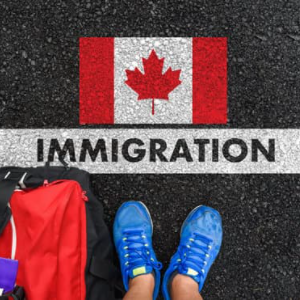Immigrating to Canada alone or with your family

Immigration to Canada is a dream for many people around the world. Renowned for its quality of life, breathtaking scenery and professional opportunities, Canada attracts thousands of newcomers every year. Whether you're planning to move alone or with your family, preparation is essential to ensure a successful transition. This article explores in detail the various aspects of immigration to Canada, from choice parameters to financial aspects and practical considerations, to help you make an informed decision.
Selection parameters
Personal and professional goals
Before making the decision to immigrate, it's important to define your personal and professional objectives. Immigrating on your own can offer greater flexibility and faster decision-making. You'll be able to concentrate on your career, explore new opportunities and adapt more quickly to a new environment. Immigrating as a family, on the other hand, means considering the needs and aspirations of each family member, which may include children's education, job opportunities for your spouse and overall living environment.
Cultural and social adaptation
Adapting to a new culture can be a daunting task. For a single person, this process can be quicker and easier to manage, as there is only one set of needs and expectations to satisfy. However, immigrating as a family offers mutual support and emotional stability, which can facilitate integration into Canadian society. It's also easier to maintain cultural traditions and celebrate important holidays as a family.
Children's education
Canada's education system is renowned for its quality. Immigrating with children means offering them a first-rate education and opportunities for personal development. However, it's essential to find out what schools are available in the area where you want to settle, and to understand the registration process, any fees involved and the programs offered.
Financial aspects
Proof of funds
Regardless of whether you are immigrating alone or with your family, the Canadian government requires proof of sufficient funds to support you during your initial settlement in Canada. This proof of funds remains the same whether you come alone or accompanied. This means that you must demonstrate that you have a certain amount of money to cover your basic expenses, such as housing, food and other essentials.
Cost of living
The cost of living in Canada can vary considerably depending on the region. Big cities like Toronto, Vancouver and Montreal are generally more expensive in terms of housing, transportation and basic services. Immigrating alone can be less expensive initially, as you'll only have one person to support. On the other hand, immigrating as a family involves additional costs for more spacious accommodation, tuition fees and health care, among other things.
Employment opportunities
The Canadian job market offers many opportunities in various sectors. Immigrating alone may allow greater flexibility in the job search and acceptance of temporary or lower-paying positions at the outset. On the other hand, immigrating as a family may require both spouses to find employment to maintain an adequate standard of living. It is therefore crucial to plan ahead and look for job opportunities before moving.
Housing
Finding suitable accommodation
Finding accommodation is a crucial step in the immigration process. For a single person, an apartment or studio may suffice, while a family will need more space, such as a house or apartment with several bedrooms. Neighborhoods with good schools, parks and community services are often preferred by families.
Housing costs
Housing costs vary according to size, location and amenities. Families must also factor in additional costs such as tuition, extracurricular activities and health care. So it's important to budget accordingly and look for housing options that meet your needs while staying within your financial means.
Health Care
Access to medical care
The Canadian healthcare system is one of the best in the world, offering quality care to all permanent residents and citizens. Immigrating alone means you only have to worry about your own health. Immigrating as a family, on the other hand, means providing medical care for all family members, including children. It's important to find out about the health insurance, clinics and hospitals available in your host region.
Health insurance
Each province and territory in Canada manages its own health insurance system. It's crucial to register as soon as possible after your arrival to take advantage of free or low-cost medical services. For families, it's particularly important to ensure that all members are covered, and to understand what services are included and excluded from public insurance.
Education and community services
Schools and day-care centres
For families, the quality and accessibility of schools and daycare centers are determining factors. Canada offers a wide range of educational choices, from public to private schools, as well as French-language and bilingual schools. It's essential to choose a school that matches your children's needs and aspirations.
Extracurricular activities
Canada offers a multitude of extracurricular activities for children and teenagers, from sports to the arts to science. Participating in these activities can help your children integrate, make friends and develop new skills. The costs associated with these activities also need to be factored into your family budget.
Integration and social networking
Networking and community
To integrate successfully in Canada, it's essential to build a solid social network. For a single person, this can mean professional networking groups, social clubs and community activities. For families, getting involved in the local community, participating in school events and neighborhood activities can facilitate the integration of all family members.
Support for new arrivals
Canada offers many support services for newcomers, including language courses, mentoring services and integration programs. These services are particularly useful for families, as they provide resources to help all members adapt to their new life.
Climate and weather conditions
Adapting to the Canadian climate
The Canadian climate can vary enormously from region to region, from harsh winters with temperatures well below zero to hot, humid summers. Immigrating alone allows for a more flexible adaptation, while immigrating as a family requires preparing everyone for the climatic conditions. Investing in appropriate clothing and learning about local practices for dealing with weather conditions is essential.
Seasonal activities
Canada offers a multitude of seasonal activities that can be enjoyed by all. In winter, skiing, skating and snow festivals are popular, while in summer, hiking, camping and outdoor festivals are popular. Participating in these activities can help newcomers integrate and appreciate Canada's different seasons.
Legal and administrative aspects
Visa and residency procedures
The procedures for obtaining a visa and permanent residency can be complex and vary according to your personal situation. Immigrating alone can simplify the process, as there is only one file to manage. For families, on the other hand, it's crucial to ensure that each member has the necessary documents, and to follow the steps for visas, work permits or study permits.
Citizenship and rights
Understanding your rights and responsibilities as a permanent resident or Canadian citizen is important. For families, it's essential to know the laws concerning compulsory education, health care and social services. Immigrating as a family also means preparing children for these new rules, and giving them the tools to understand their rights in their new country.
Daily life and leisure
Food and cooking
Canada is a multicultural country with great culinary diversity. Discovering supermarkets, local markets and restaurants can be an adventure in itself. For families, cooking meals together can be a way of maintaining traditions while adapting to new flavors. Single people can take advantage of this diversity to explore new tastes and meet new people through cooking classes or gastronomic events.
Transport and mobility
Canada's transportation system is well-developed, with a variety of options including public transit, bicycles and cars. Major cities have efficient subway, bus and streetcar networks. Immigrating alone can provide greater mobility and flexibility in daily travel. For families, it is often necessary to provide suitable transport for school trips and extra-curricular activities.
Immigrating to Canada: alone or with family?
Immigrating to Canada, whether alone or as a family, requires careful preparation. Parameters of choice include personal and professional goals, cultural adaptation, and child rearing. Financially, the proof of funds required remains the same, but the cost of living varies according to family size and the region chosen. Families must also consider housing, health care, education and community services. By evaluating these factors, you can ensure a successful and rewarding transition to Canada.
Conclusion
Immigrating to Canada, whether alone or with your family, is a major decision that requires careful planning and preparation. By carefully evaluating the parameters of choice, the financial aspects and various practical considerations, you can ensure a successful and rewarding transition. Canada offers many opportunities and an exceptional quality of life for those who are ready to take up the challenge of immigration. Don't hesitate to consult immigration professionals for personalized advice, and make use of the many resources available to help you settle in. Good luck in your Canadian adventure!




